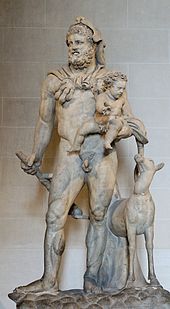Also on this page:
Greek Myth,
Greek Mythology Books,
Greek Mythology,
More Mythology Topics
More Topic Categories
Greek Mythology
 Greek mythology refers to the myths of the Ancient Greeks, about their Pantheon and heroes, the cosmogony, and the origins of their rituals. It was a part of Ancient Greek religion. Information is drawn by various Greek mythology books that have survived, including Hesiod’s “Theogony” and the “Works and Days”. Fragments of myths may also be found in other literary works, such as the Homeric Epics, lyric poems, the tragedies of Classical Greece, etc.
Greek mythology refers to the myths of the Ancient Greeks, about their Pantheon and heroes, the cosmogony, and the origins of their rituals. It was a part of Ancient Greek religion. Information is drawn by various Greek mythology books that have survived, including Hesiod’s “Theogony” and the “Works and Days”. Fragments of myths may also be found in other literary works, such as the Homeric Epics, lyric poems, the tragedies of Classical Greece, etc.According to Hesiod, in the beginning there was Chaos, nothingness, out of which emerged Gaia (the Earth) and other primary deities. Gaia gave birth to Uranus in parthenogenesis, who then fertilized her; she then bore the Titans, the first Pantheon of the Greeks, consisting of six male and six female deities. Those were Coeus, Crius, Cronus, Hyperion, Iapetus, Oceanus, Mnemosyne, Phoebe, Rhea, Theia, Themis and Tethys. Gaia and Uranus decided that no more Titans should be born, and were followed by the Cyclopes and the Hecatonchires, all of them thrown into Tartarus by their father. Gaia, infuriated, convinced her son Cronus to castrate his father, and he became the ruler of the Titans. Later, Cronus was overthrown by his son Zeus, and the Olympian Pantheon was thus established.
The Heroic Age of Men followed, in which heroes, such as Heracles, lived. Heracles was the son of Zeus and Alcmene, a mortal, thus making him a demi – god. He is portrayed as a sacrificier, a strong man of moderate height and his weapons included the bow and the club. Other heroes, “contemporary” to Heracles, include Perseus, Deucalion, Theseus and Bellerophon. The tales around these heroes border on the fantastic, as they are depicted slaying monsters like Medusa. Another important hero of this age was Jason, whose adventures are mentioned in the sole Hellenistic epic that survives today, the Argonautica. Jason and his fellows, the Argonauts, set on a voyage to the mythical land of Colchis to retrieve the Golden Fleece; he was told to do this by King Pelias, who had learned of a prophecy in which the one – sandal man would be his nemesis. Jason had lost his sandal in the river, and thus the adventure began.
The peak of Greek mythology came with the Trojan War, fought between the Greeks and Troy. The Trojan War was the result of a series of events that are mentioned in a collection of epic poems; these events were the Golden Apple of Kallisti and Eris, the Judgement of Paris, the abduction of Helen, and the sacrifice of Iphigenia. When the Greeks asked the Trojans to return Helen and the latter refused, a great expedition was started that eventually led to the Trojan War. The Homeric Epic, the Iliad, recounts the chronicle of War starting on its tenth year. The War eventually ended in favour of the Greeks, after Odysseus thought of the Trojan horse device. The other Homeric Epic, the Odyssey, recounts the adventures of Odysseus on his ten – year return journey to Ithaca, after the Trojan War was over.
Greek mythology has been the inspiration of innumerable books and movies. With such rich content, the list is only expected to grow.
See Also:
 Athens Photos
Athens Photos
 Santorini Photos
Santorini Photos
 Crete Photos
Crete Photos
 Meteora Photos
Meteora Photos
 Corfu Photos
Corfu Photos

